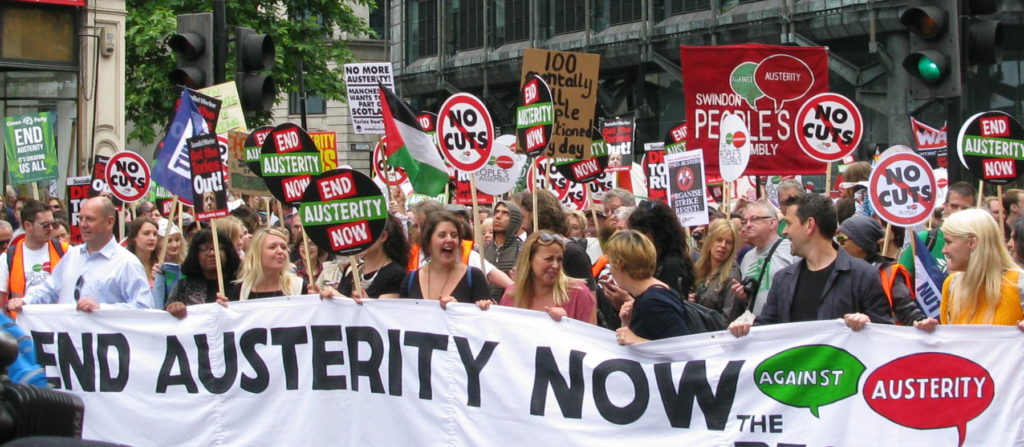An aspiration nation
An aspiration nation. That’s how George Osborne described the UK in his fourth budget. A budget that brings some fortune to big business, home owners and tax avoiders but gives little hope to the hundreds of thousands who may face eviction because of the bedroom tax, to the single parents wondering how they’re going to feed their kids next month or to the job seekers forced to work for free or have their benefits removed.
Today’s budget didn’t contain the huge cuts to social security that last year’s did. In fact welfare reform, along with all its victims, was conspicuous by its absence. Listening to Osborne’s speech, even reading the budget itself, you would be forgiven for forgetting that £18 billion of cuts have already been made to the social security budget, taking money not just from the pockets of the poor but from the whole economy.
Social security cuts hit disabled people, the young, and the sick. But they do more than that. It’s estimated that benefit cuts and reforms will take £2.7 billion out of the Scottish economy and the Child Poverty Action Group estimates that 600,000 children UK-wide will be forced into absolute poverty by the end of this parliament as a direct result of Coalition policies. What’s more, the cost of living is rising whilst wages stagnate. A 30% rise in food prices in the last five years, coupled with a doubling in energy prices since 2004 are making it ever harder to make ends meet, for those in and out of work.
Those figures are horrifying. They represent a step backwards and an entrenchment of the poverty that successive governments have tried to tackle. But to me, Osborne’s talk of an aspiration nation, at the expense of the poor, signifies something more sinister.
He said in his speech that this government wanted to support those who were independent of the state:
“…a tax system where people and businesses pay what is expected of them is part of the glue that holds society together.
So too is the expectation that those who work hard, who play by the rules, who save for their future and try to be independent of the state are not undermined but supported.”
The idea that people ought to be aspiring to be independent of the state may sound like another attempt to tackle to mythical beast that is “welfare dependency”. But what it really means is that the state no longer wants to support you if you lose your job or fall ill. This government doesn’t care about anyone who can’t take care of themselves.
No matter if your poverty is caused by their friends in big business refusing to pay a living wage and calling for ever more ingenious ways to fire you without consequence for them. Or that you’re left with £25 a week for all your food, transport, clothes and phone calls after their bedroom tax takes away the last piece of hope that you might just be able to live with a little dignity on what they laughingly call “benefits”.
Quite aside from the glaring flaws in his argument that the glue holding society is people paying their taxes, by celebrating the “aspirations” of those who already have wealth – whether by helping them to invest in a new home or a new business – Osborne ignores the aspirations of the many who simply aspire to heat their homes without having to take out a payday loan. And what’s more, he perpetuates a crazy housing market that keeps the poorest locked out, when a genuine house building programme could provide decent homes at decent prices.
What’s really at the heart of this government and this budget is the destruction of social solidarity. If those in the middle are suspicious of those at the bottom for not trying hard enough and those at the bottom are suspicious of each other for getting something for nothing, then the government has won.



Leave a Reply